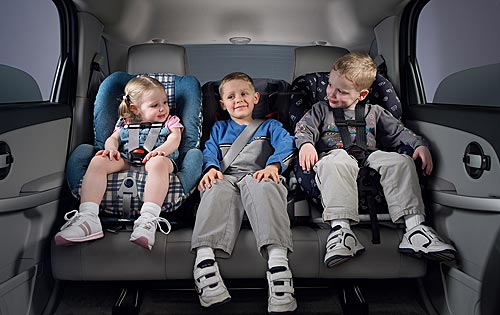Over half of Australian parents admit to breaking the law while their kids are in the car. Apparently, owners of high status cars are not much better and tend to flout traffic rules too. NRMA even found luxury sedan owners were 29% more likely than other drivers to be involved in collisions. So who are the worst drivers?
Owners of luxury cars are the worst
University of Helsinki research in 2019 found owners of high-status brands like Audi, BMW and Mercedes-Benz are more likely to be men who are argumentative, disagreeable, self-centred, stubborn, and unempathetic. The university used a well-known framework of five personality traits and described its findings as unambiguous.
Women may be less likely to use cars as a status symbol, which could explain why these findings were for men only. However, male and female owners of luxury cars scored high on conscientiousness traits.
A small US study of drivers passing a pedestrian crossing found drivers of “flashy cars” were less likely to stop. The odds they would stop fell by 3% per $1,000 increase in the car’s value. BMW drivers were the least likely. One researcher joked, “Despite its good brakes, a BMW will usually stop with a jerk”. But there is worse to come.
Parents are the worst drivers too
Over half of Australian parents admit to breaking the law while their kids are in the car. According to the most recent AAMI Crash Index, a quarter of accidents happen around school pick-up times”, especially on Fridays. You might expect drivers at these congested times would take more care. In fact, they become more aggressive and enter “early stages of automotive violence”.
What is remarkable, half of Australian parents actually admit to speeding, using their mobiles and driving distracted – even when their kids are in the car.
This Australian Road Safety Foundation survey in 2019 also found:
- One in five parents admit they take these same risks even with someone else’s children in the car
- A third of parents admit they drive over the legal alcohol limit
- Three quarters say they speed regularly, compared to two thirds of people without children.
The sobering thought is that children are consciously or not watching their parents drive. In this sense, every parent is teaching their children how to drive.
Worse perhaps than bad driving is forgetting their children are in the car. Forgetting your child is the same biological process as forgetting your car keys – but the result is worse.
It is not usually a deliberate act. The RACV has to attend around three accidental lock-ins every day. One drawback is the rear-facing seat, where the parent cannot see their child and, if they are asleep, can’t hear them either.
Most likely to be in a collision
NRMA analysis found type of vehicle appears to be related to the likelihood of being in a collision and making a claim. Researchers looked at how likely drivers of these vehicles were to be involved in collisions during that year. Drivers of:
- Luxury sedans were 29% more likely
- luxury SUVs were 27% more likely
- commercial vans were 15% more likely
- utes were 27% less likely
- trucks were 37% less likely to be in collisions.
It’s an interesting result, given that drivers of utes and trucks travel for work and cover more kilometres than average. A spokesperson said driver behaviour has something to do with greater chance of collisions. But he did not venture to go as far as the Finnish researchers.
Parents may claim they are sleep-deprived, distracted or stressed, but that is still no excuse for bad driving. And neither is driving an Audi, Mercedes-Benz or BMW!


your opinion matters: